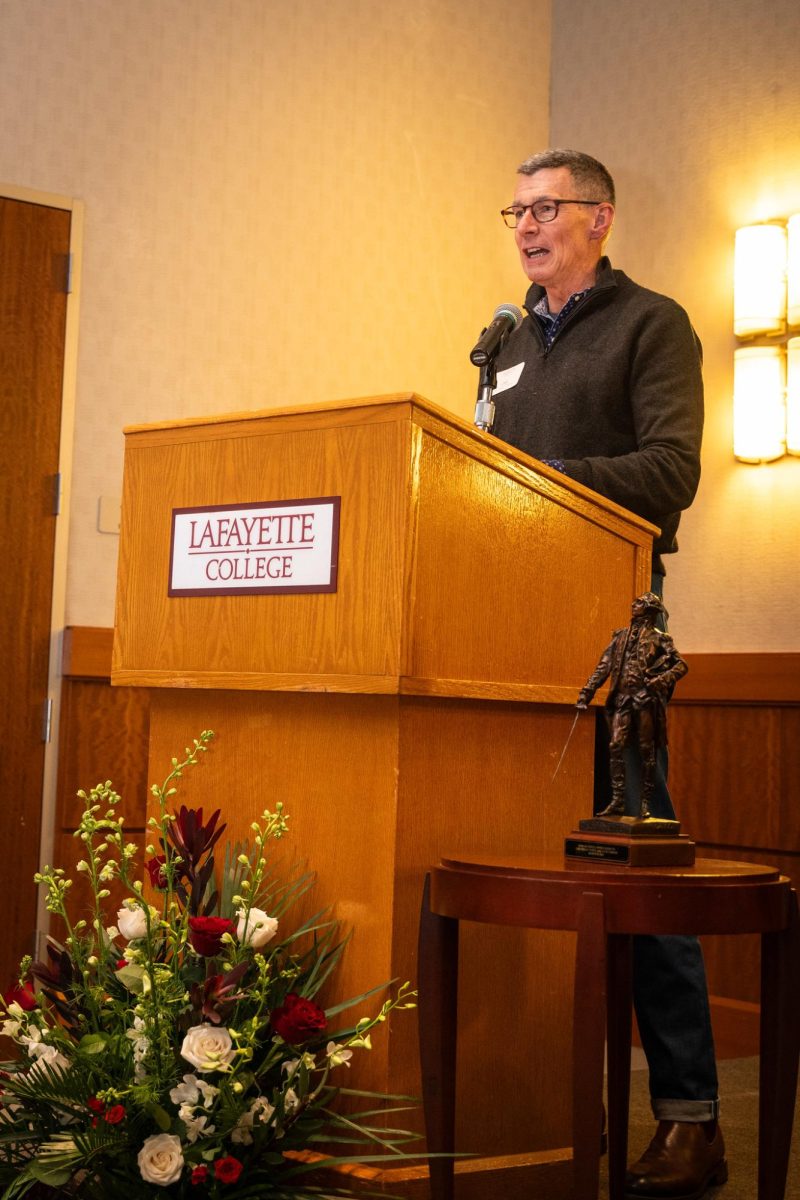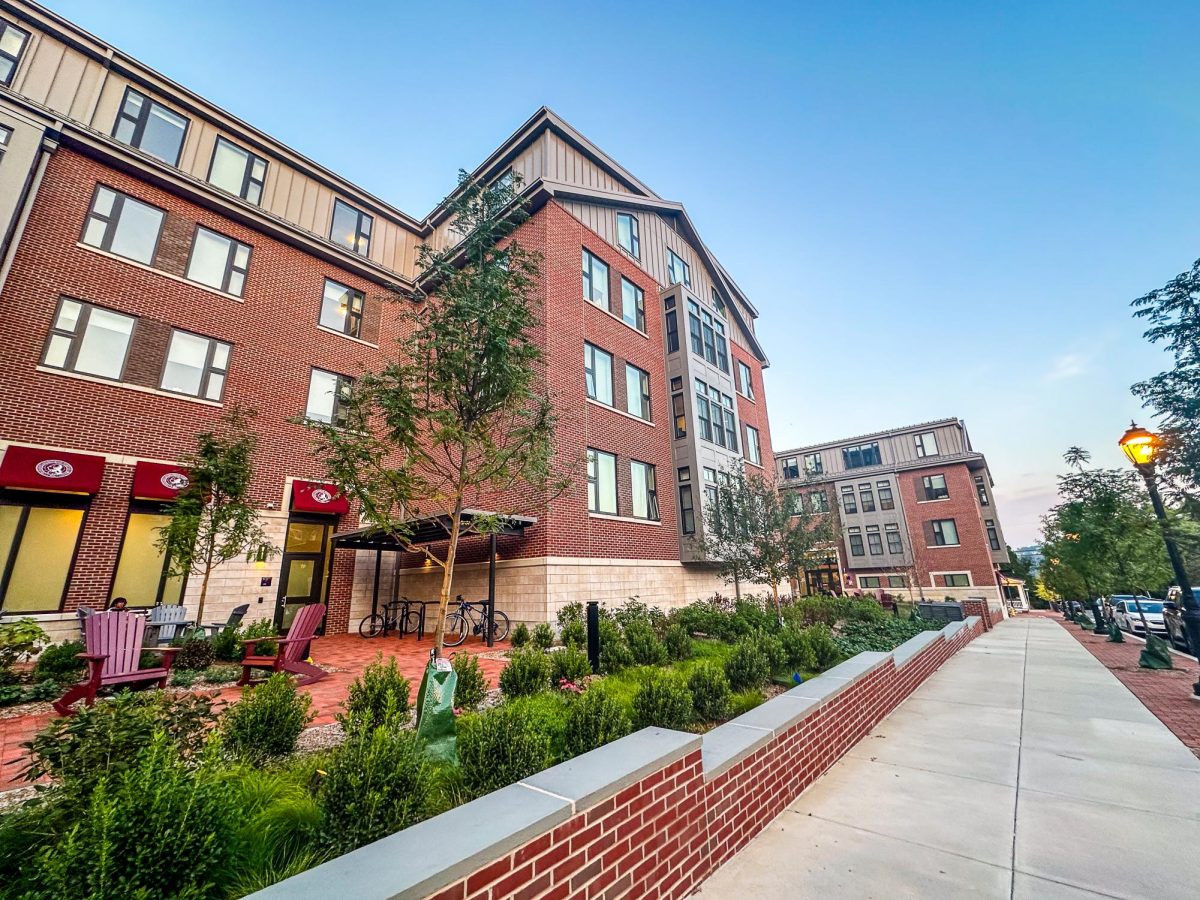With a Lafayette College master plan in the works and the recent completion of the college’s newest apartment-style dorm, how have Lafayette’s most recent developments on College Hill impacted its residents?
Phillip Matraxia, who has owned Matraxia’s Hair Salon since 1979, has observed a shift in the demographic of College Hill over the decades.
“It’s all apartments,” Matraxia said of Cattell Street. “There’s no families on this block. Years ago, when I grew up on the hill, McCartney Street was all homes and the college bought them up.”
Paul Felder, an engineering studies instructor, architect and resident of College Hill, has opposed the expansion for years. The housing issues first appeared in 2016, according to Felder, with a concern for a loss of community at the forefront. In 2017, Felder organized the Save College Hill movement.
“One of the real primary reasons for the opposition to building the dormitories over there is the loss of housing stock that creates a healthy neighborhood,” he said of the east side of College Hill.
According to Felder, the college owns more than 150 properties — most of which are houses — although the exact plans and uses of many of these buildings remain unknown.
Some landlords had a positive outlook on the expansion of housing for students. Peter Melan has owned and rented out a property to students on College Hill for 25 years; a College Hill resident himself, he stated that he would like to continue sharing the neighborhood with students.
“I think right now there’s a healthy balance between the college kids and the neighborhood,” Melan said. “Obviously, I would love to have the next 20 years of college kids live in my place, but I’m also a realist where economics changes.”
Beverly Sessegolo, a property owner of 13 years, feels that Lafayette has maintained a history of subpar communication with landlords, business owners and community members.
“This house that we rent became almost a lifeline for us, in a sense that it does provide some income to us,” Sessegolo said. “It is a little scary every year when Lafayette expands because oftentimes we’re not kept in the loop as to how that’s going to affect us.”
Felder also noted that a lack of parking has raised concerns in the community.
“You don’t have parking for the students,” Felder said. “You don’t have parking for their parents. You don’t have parking for the stores.”
Matraxia echoed Felder’s statement, explaining that his storefront now has a limit of four parking spaces. After repeated incidents of customers receiving parking tickets, a sign now stands in his salon warning of the parking restriction.
Margaret Duffy, a landlord of 16 years, has also taken notice of the reduced street parking but is not too concerned.
“There’s more cars on our street,” Duffy said. “But it’s still not a problem.”
According to Scott Morse, the college spokesman, the recent renovation of the Markle Deck and the addition of the Bushkill Lot created 500 new parking spots for Lafayette.
“Because of these significant parking-space additions, there are no further plans at this time to add more parking spaces on campus,” Morse wrote in an email.
Sessegolo remains worried about the future of her properties if Lafayette continues to purchase homes on College Hill.
“All of us had to sort of move out of the area because Lafayette expanded,” Sessegolo said.
She hopes that the college will keep the community members in mind during planning, as continued expansion would go against its initial promise to accommodate the community.
“They’re looking after their own and not understanding how that would impact the families that own homes up there,” Sessegolo added.
According to Morse, the college has requested and received input from the residents and local businesses of College Hill, the City of Easton and Forks Township during the strategic planning and master planning processes.
“Since these processes began in 2023, multiple listening sessions have been held to share the details of each plan, allow for questions and answers, and share direct feedback,” Morse wrote. “These sessions have generated great attendance from our community.”
The college also surveyed the community on the planned development and received 1,000 responses from a wide range of demographics, according to Morse. He also noted that the Landis Center for Community Engagement holds regular meetings with community members of College Hill “to provide updates and receive feedback.”
“The websites for each plan are continually updated with the latest information,” Morse wrote.
Duffy feels that the integration of Lafayette students into the community is currently positive.
“The Lafayette students are very respectful living in the neighborhood,” Duffy said. “It’s super, super quiet without the Lafayette students — not that they’re noisy — but it’s just that you feel the loss of their presence over the summer.”
Duffy is excited by the movement of students into the greater College Hill community, as it comes with improvements to the area that can be enjoyed by all residents – not just students.
“I would say Lafayette, everything they touch is beautiful,” Duffy said. “If they’re going to do it, I feel like it’s going to be done well and we get the benefit of the beautification that they make on College Hill.”
A correction was made on October 4, 2024: A previous version of this article incorrectly stated that the renovation of the Markle Parking deck and the addition of the Bushkill parking lot tripled parking spaces on campus—the additions actually tripled spaces in these two lots combined.












































































































